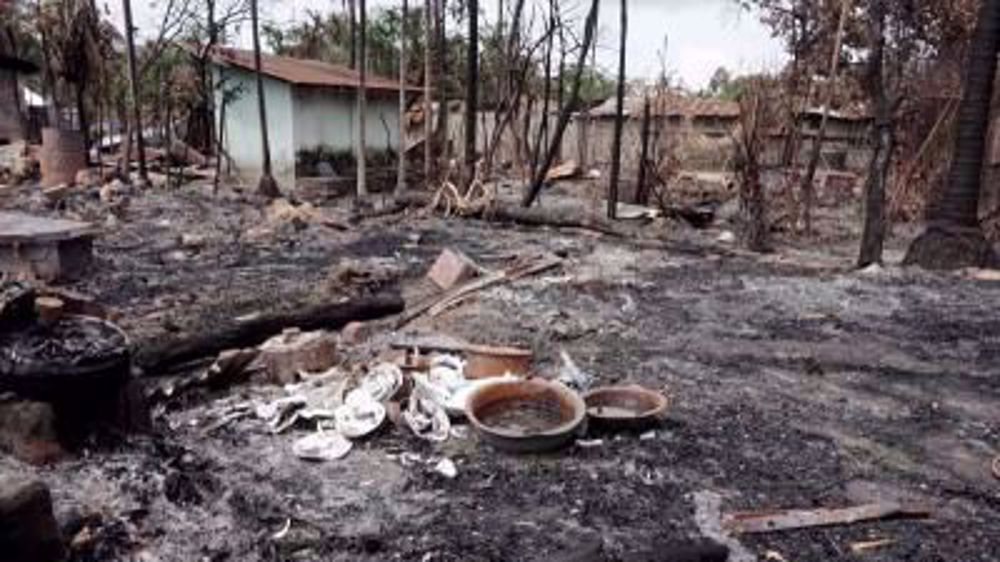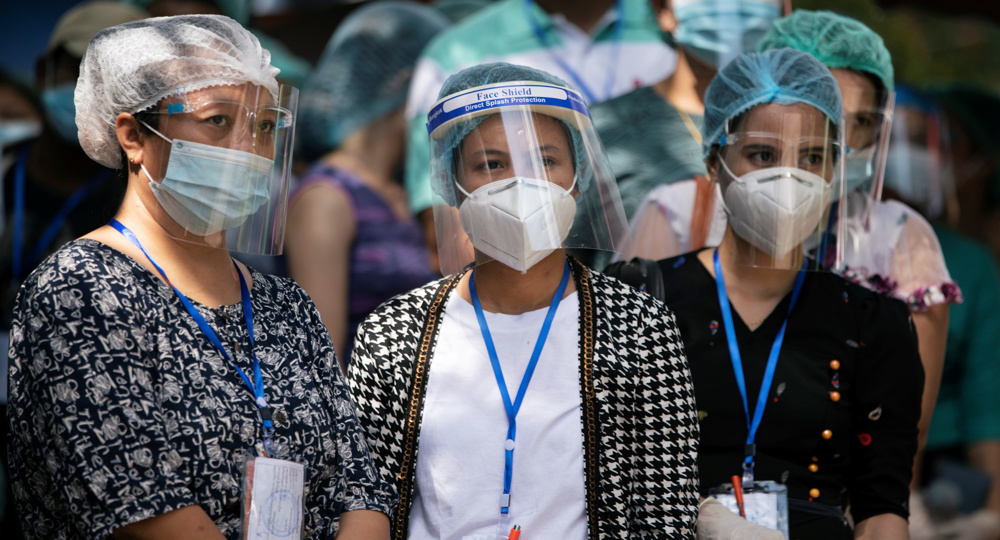Bangladesh to move thousands of Rohingya refugees to flood-prone island despite outcry
Thousands of more Rohingya Muslims from Myanmar who have taken refuge in Bangladesh are now planned to be relocated from crowded camps to a flood-prone island in the Bay of Bengal despite concerns about the risk of storms and floods lashing the site.
Two Bangladeshi officials told media outlets on Sunday that 3,000 to 4,000 more Rohingya refugees would be moved to a remote to Bhasan Char island over the next two days.
Rashed Sattar, a Bangladeshi navy commander confirmed that the Rohingya refugees will be moved to the remote site by ships on Monday and Tuesday.
Dhaka has relocated around 7,000 to Bhasan Char Island since early December from overcrowded refugee camps in Cox's Bazar in southeastern Bangladesh.
Once they arrive on Bhasan Char, the Rohingya are not allowed to leave the island, which is several hours' journey from the southern port of Chittagong.
Bangladesh has drawn criticism for a reluctance to consult with the United Nations refugee agency and other aid bodies over the transfers.
The UN High Commissioner for Refugees says the agency has not been allowed to evaluate the safety and sustainability of life on the island.
Bangladesh says the relocation is voluntary, but some of a first group to be moved spoke of being coerced.
Some Rohingyas reportedly agreed to relocate to the island after they were shown video footage of the shelters.
The government has dismissed safety concerns over the island, citing the building of flood defenses as well as housing for 100,000 people, hospitals and cyclone centers.
"The process of moving the Rohingya will continue... they are going there happily for better life," Mohammad Shamsud Douza, the deputy Bangladesh government official in charge of refugees, said.
The official called on Myanmar to move forward the stalled process of voluntary repatriation of Rohingya refugees.
"Our main priority is repatriating them to their homeland in a dignified and sustainable way," he said.
Bangladesh has been planning since last year to relocate Rohingya to the desolate flood-prone site.
Some human rights groups have voiced concern about the plan because the island is remote and prone to devastation from cyclones. They have warned the island might not be able to withstand violent storms during the annual monsoon season.
In the past five decades, powerful cyclones have killed thousands of people in the Meghna River estuary, where the island is located.
The number of refugees in Cox’s Bazar has swelled since August 2017, when a military-led crackdown in Myanmar — which UN investigators have said was conducted with “genocidal intent” — prompted some 740,000 Rohingya to flee to Bangladesh, which was already hosting some 200,000 Rohingya when the 2017 exodus began.
The Rohingya are denied citizenship in Myanmar and considered illegal immigrants despite their ancestral roots dating back centuries.
VIDEO | Press TV's news headlines
Iran FM: Response to Israeli aggression 'inevitable'
VIDEO | Iran eases the rules for exporting hand-woven carpets
VIDEO | Intl. Day for the Elimination of Violence against Women: A stark reminder of Gaza women
Australia denies ex-Israeli minister Shaked visa
VIDEO | 85% of Yemeni displaced people face daily hunger crisis
US House passes bill targeting charities and pro-Palestine groups
VIDEO | Supporting Gaza genocide















 This makes it easy to access the Press TV website
This makes it easy to access the Press TV website